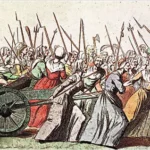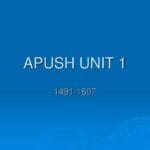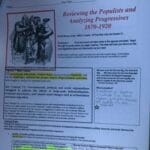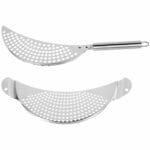Ready to dive into the fascinating world of U.S. history? This guide is your secret weapon for conquering the CLEP U.S. History 1 exam. We’ll equip you with the knowledge and strategies needed to potentially snag some sweet college credit while deepening your understanding of America’s past. Let’s embark on this journey together!
History of the United States 1 CLEP Practice Test: Your Path to Success (and Maybe College Credit!)
Let’s face it, studying history can sometimes feel like opening a dusty old textbook. However, what if you could potentially skip an entire college class (and the hefty tuition fees) just by proving your knowledge? That’s where the History of the United States 1 CLEP Practice Test comes in. Consider this guide your trusty sidekick, here to navigate the ins and outs of the exam and help you potentially earn college credit along the way!
What Does the Test Cover?
The History of the United States 1 CLEP Practice Test assesses your understanding of the people, events, and ideas that shaped the U.S. from its colonial beginnings to the Reconstruction era (ending in 1877).
Instead of overwhelming you with minute details, the test takes a big-picture approach, focusing on five key themes:
| Section | What You Need to Know |
|---|---|
| Political Institutions & Processes | How the U.S. government functions, significant laws, and decision-making processes (35% of the test) |
| Social Developments | Changes in daily life, population shifts, cultural trends, and social movements (25% of the test) |
| Economic Developments | The growth of the U.S. economy, industrial expansion, and trade relations (10% of the test) |
| Cultural & Intellectual Developments | Art, literature, education, and other influences on American culture (15% of the test) |
| Diplomacy & International Relations | The U.S.’s role in the world, including foreign policy and wars (15% of the test) |
Ready to Prepare Like a History Buff? Let’s Get Started!
1. Become Familiar with the Content (It’s More Engaging Than You Think!):
- Textbooks: They provide a comprehensive overview of the subject matter.
- Lecture Notes: Highlight important concepts and can jog your memory.
- Primary Sources: Explore original documents from the time period, like letters and speeches, for a captivating glimpse into the past.
2. Practice Makes Perfect (and Builds Confidence):
- Mock Exams: Our History of the United States 1 CLEP Practice Test simulates the real exam experience. Take it multiple times to familiarize yourself with the format and identify areas for improvement.
3. Don’t Be Afraid to Seek Guidance:
- Professors: Tap into their expertise during office hours or ask for resource recommendations.
- Tutors: They can offer personalized explanations and support.
- Study Groups: Collaborate, share knowledge, and stay motivated with peers.
4. Unleash Your Inner History Detective:
- Historical Archives: Libraries and online archives house a wealth of primary sources waiting to be discovered.
- Scholarly Articles: Delve into in-depth analyses and interpretations from experts in the field.
The Takeaway? You Can Do This!
By investing time and effort in understanding the key themes, practicing with our History of the United States 1 CLEP Practice Test, and tapping into your inner history enthusiast, you’ll be well-prepared to conquer this exam. You may even develop a newfound appreciation for U.S. history along the way!
How Many Questions Are on the US History 1 CLEP Exam?
The US History 1 CLEP exam consists of approximately 120 questions. This may seem daunting, but it allows for a comprehensive assessment of your understanding of the shaping of America.
What to Expect on Exam Day
You will have 90 minutes to answer the 120 questions, giving you a little under a minute per question. Time management is crucial!
The questions cover a wide breadth of topics, spanning from early European colonization to the Reconstruction era. You might encounter “pretest” questions, which do not count towards your final score. These questions help the test makers refine future exams.
Feeling Overwhelmed? Don’t panic! The key to success lies in understanding the major events, influential figures, and significant ideas that have shaped early American history. Focus on grasping the big picture, and the details will fall into place.
Best of luck, you’ve got this!
What Is the Most Difficult CLEP Exam?
There isn’t a single “most difficult” CLEP exam, as difficulty can be subjective and depend on your strengths and areas for improvement. However, some exams tend to have lower pass rates, suggesting they might require more rigorous preparation.
Exams That Often Pose a Challenge
Here are a few CLEP exams that statistically have lower pass rates:
| Exam | Pass Rate (Approximate) |
|---|---|
| Chemistry | 39% |
| Western Civilization II | 48% |
| American Literature | 51% |
| Introductory Business Law | 51% |
| American Government | 52% |
Why Are These Exams Considered More Difficult?
Several factors can contribute to the perceived difficulty of these exams:
- Chemistry: Requires a strong grasp of complex scientific principles and problem-solving skills.
- Western Civilization II: Covers a vast historical period, from the Renaissance to the present, demanding extensive memorization and understanding of historical trends.
- American Literature: Requires in-depth knowledge of literary movements, authors’ styles, and analytical skills.
- Introductory Business Law: Involves grasping legal concepts and jargon that might be unfamiliar to those new to the subject.
- American Government: Demands a thorough understanding of the U.S. political system, which can be quite intricate.
Important Considerations
- Pass rates can fluctuate: The College Board, the administrator of CLEP exams, continuously reviews and updates exams, potentially affecting pass rates over time.
- Difficulty is subjective: What’s challenging for one person might be a breeze for another. Your background knowledge and learning style significantly impact your experience.
The Bottom Line
Don’t let these pass rates discourage you! With adequate preparation, you can conquer any CLEP exam. Understanding the exam’s scope, studying strategically, and leveraging available resources can significantly enhance your chances of success.
What Is the Pass Rate for the US History 2 CLEP Exam?
While it’s natural to seek a definitive answer, the College Board does not publish a fixed pass rate for the US History II CLEP exam. Think of it like a moving target—each year, a new cohort of students takes the exam, each with varying levels of preparation and background knowledge.
The absence of a fixed pass rate underscores the importance of thorough preparation. The more you study and familiarize yourself with the exam format and content, the higher your chances of success.
Key Points to Remember
- Focus on the Content: The US History II CLEP exam centers on American history from the end of the Civil War (around 1877) to modern times. A strong grasp of the major events, key figures, and essential themes from this period is crucial.
- Practice Makes a Difference: Utilizing official study materials and practice tests from the College Board can give you valuable insights into the exam format and question styles.
- Don’t Fixate on the Numbers: Instead of obsessing over an elusive pass rate, concentrate on mastering the material. Confidence in your knowledge will serve you well, regardless of how others perform.
The US History 2 CLEP exam is designed to evaluate your comprehension of a specific subject area. Your preparation and understanding of the material matter far more than an ever-changing pass rate. So, buckle down, study effectively, and approach the exam with confidence!
What Happens if You Get Caught Cheating on a CLEP Exam?
Cheating on a CLEP exam is a serious offense with potentially severe consequences. Test administrators are vigilant in detecting suspicious behavior, and the repercussions can be significant, impacting your academic future.
Consequences of Cheating
- Immediate Removal: You’ll likely be asked to leave the exam room.
- Score Cancellation: Your exam score will probably be invalidated, rendering your preparation efforts futile.
- Legal Action: In severe cases, legal action might be taken against you.
Actions Considered Cheating
- Accessing Exam Content Beforehand: Attempting to obtain leaked exam papers or searching for answers online.
- Using Prohibited Items: Bringing cell phones, smartwatches, notes, textbooks, or any materials that could provide an unfair advantage.
- Unauthorized Leaving of the Testing Room: Bathroom breaks are monitored, so unless it’s an emergency, stay put.
- Disrupting the Exam: Causing distractions for other test-takers is unacceptable. Maintain a respectful and focused environment.
The Importance of Academic Integrity
The College Board takes academic integrity seriously to ensure fairness for all test-takers. Cheating undermines the integrity of the exam and can have lasting repercussions.
Remember:
- Don’t share exam questions even after completing the test.
- Protect the security of the exam to maintain a level playing field for everyone.
Cheating on a CLEP exam is a gamble with far too much at stake. The risks greatly outweigh any perceived benefits. Focus on honest preparation, and let your knowledge and hard work earn you the credit you deserve!
Is It Hard to Pass a CLEP Exam?
The difficulty of a CLEP exam is subjective and depends on several factors, including your familiarity with the subject matter, your learning style, and your level of preparation.
Think of it like this: if you’re already well-versed in a subject, passing the corresponding CLEP exam might feel like a breeze. However, if you’re starting from scratch, more effort and dedication will be required.
Tips for Success
- Focus on Understanding: Instead of memorizing every detail, prioritize understanding the main ideas and key terms.
- Utilize the Review Button: Don’t hesitate to flag uncertain questions and revisit them later with a fresh perspective.
- Leverage Study Resources: Study guides can be valuable tools, providing practice questions and explanations tailored to the specific CLEP exam.
Aim High
While a “C” is typically considered passing, why not strive for a higher score? It not only demonstrates your knowledge but can also potentially boost your GPA.
Effective Study Strategies
- Flashcards: Excellent for memorizing key terms and concepts.
- Self-Testing: Practice recalling information and identifying areas that need further review.
- Study Groups and Online Forums: Connect with fellow CLEP exam takers, share tips and resources, and learn from each other’s experiences.
Remember
- Every CLEP exam is unique, so tailor your preparation to the specific test you’re taking.
- The College Board website is a treasure trove of resources, including practice questions and exam outlines.
With the right mindset, preparation, and resources, you can conquer your CLEP exam and achieve your academic goals!
Which CLEP Exams Are the Easiest to Pass?
While the perceived difficulty of a CLEP exam can be subjective, certain exams tend to have higher pass rates, suggesting they might be more manageable for many students.
Exams in subjects like history, literature, and some social sciences often build upon knowledge acquired through general reading and life experiences, making them potentially more approachable.
CLEP Exams with Higher Pass Rates
Here are some CLEP exams that consistently demonstrate higher pass rates:
| Exam | Estimated Pass Rate |
|---|---|
| Spanish Language | 91% |
| College Composition Modular | 83% |
| College Composition | 81% |
| Introductory Sociology | 80% |
| Principles of Marketing | 79% |
Important Considerations
- Pass rates can fluctuate: These numbers are not set in stone and can change from year to year.
- Difficulty is subjective: What one person finds easy, another might find challenging. Choose an exam that aligns with your strengths and interests.
The Takeaway
Selecting an exam that aligns with your interests and existing knowledge base can make the preparation process more enjoyable and potentially lead to a higher chance of success. Always prioritize thorough preparation, regardless of the perceived difficulty level.
How Many Questions Do You Need to Get Right to Pass a CLEP Exam?
While the exact number of questions required to pass a CLEP exam varies depending on the specific exam and the institution’s policies, a general rule of thumb is to aim for a score of 70% or higher.
For example, on an 80-question exam, correctly answering around 56 questions would likely result in a passing score.
CLEP Exam Scoring
CLEP exams use a scaled scoring system, and while the passing threshold might fluctuate slightly, aiming for 70% accuracy is a good target. Interestingly, your transcript will not reflect your exact score—it will simply display a “P” to indicate that you passed. However, checking with your specific institution regarding their CLEP credit transfer policies is essential, as some institutions might require a score higher than the standard passing grade.
The Value of CLEP Exams
CLEP exams offer a valuable opportunity to earn college credit efficiently and affordably. By demonstrating your knowledge in a specific subject area, you can potentially bypass an entire semester’s worth of coursework, saving you both time and money.
What Percentage is a 50 on a CLEP Exam?
A score of 50 on a CLEP exam is generally considered passing, but it doesn’t directly translate to a percentage in the traditional sense. Here’s why:
- Scaled Scoring: CLEP exams use a scaled scoring system, which means your raw score (the number of questions answered correctly) is converted into a scaled score that ranges from 20 to 80.
- Passing Threshold: While a scaled score of 50 is often the minimum for earning credit, the actual percentage of questions you need to answer correctly to achieve this score can vary.
- Institutional Policies: Each college or university sets its own policies regarding CLEP credit, so the percentage equivalent of a 50 might differ slightly.
In essence, while a 50 is considered passing, it’s essential to remember that:
- It doesn’t necessarily mean you answered 50% of the questions correctly.
- The actual percentage required to pass can vary depending on the exam’s difficulty and other factors.
Always consult your institution’s CLEP policy to determine their specific requirements.
How Many Questions Are on the U.S. History Test?
The number of questions on a U.S. history test can vary significantly depending on the specific exam you’re taking.
Here’s a comparison of some common U.S. History tests:
- CLEP U.S. History 1 Practice Test: Typically includes around 120 multiple-choice questions to be completed within a 90-minute timeframe.
- AP U.S. History Exam: The multiple-choice section is shorter, consisting of 55 questions to be answered in 55 minutes.
- CLEP U.S. History 2 Exam: Similar in length to the CLEP U.S. History 1 exam, with approximately 120 multiple-choice questions to be completed in 90 minutes.
Remember: Consult the official exam details for the specific U.S. history test you’re preparing for to get accurate information about the number of questions. Regardless of the exam, understanding the format, the types of questions, and pacing yourself are crucial for success.
How Many Questions Are in the U.S. History EOC?
The U.S. History End-of-Course (EOC) exam, like many standardized tests, can have variations in structure and content depending on the state or educational board administering it. However, we can look at common formats to give you a general idea.
- Florida’s U.S. History EOC: This exam typically consists of up to 60 multiple-choice questions, according to the Florida Department of Education.
- Not All Questions Are Scored: It’s important to note that not all questions on standardized tests like the EOC are scored. Some are pretest questions used to gather data for future exam development.
- Number of Scored Questions: The actual number of scored questions on the U.S. History EOC can range, but a typical example is 6 to 10 questions per section.
For the most accurate and up-to-date information, always refer to your state’s Department of Education or the specific organization responsible for administering the U.S. History EOC exam.
By understanding the structure, content, and potential number of questions, you can better prepare for your U.S. History EOC exam.
Ready to Conquer Your CLEP Exams?
We hope this comprehensive guide has provided you with valuable insights and strategies to excel on your CLEP journey. Remember, thorough preparation, a strategic approach, and a positive mindset are your keys to unlocking college credit and expanding your knowledge of U.S. history!
Explore Further:
- Immerse yourself in the rich history of the Sturgis Motorcycle Rally and discover the legendary origins and evolution of this iconic event.
- Embark on a journey through time to uncover the history of Tirta Empul Temple, a sacred sanctuary in Bali that has captivated the hearts and souls of devotees for centuries.
- Experience the evolution of golf equipment with the history of Titleist drivers, tracing the advancements and innovations that have shaped the game as we know it today.















